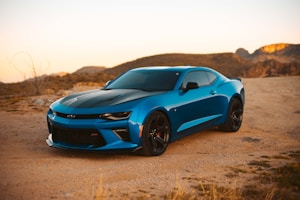Gas Mileage Champions: Most Fuel-Efficient Cars by Category 2025
With gas prices fluctuating and environmental concerns growing, fuel efficiency has never been more important. Whether you're looking for a compact commuter car or a family SUV, choosing a fuel-efficient vehicle can save you thousands of dollars annually while reducing your carbon footprint.
Quick Fuel Savings Calculator
2025 Fuel Efficiency Champions by Category
Compact Cars

Toyota Prius
The undisputed hybrid champion
Midsize Cars

Toyota Camry Hybrid
Spacious and efficient
SUVs

Toyota RAV4 Hybrid
Best-in-class SUV efficiency
Compact Car Fuel Efficiency Champions

Toyota Prius

Honda Insight

Toyota Corolla Hybrid

Nissan Versa
Compact Car Insights
Hybrid Advantage
Hybrid compact cars achieve 15-20 MPG better fuel economy than their gas-only counterparts.
Best Value
Compact cars offer the lowest total cost of ownership, especially in city driving conditions.
City Champions
Most compact cars perform better in city driving than highway due to regenerative braking.
Midsize Car Fuel Efficiency Leaders

Toyota Camry Hybrid

Honda Accord Hybrid

Hyundai Sonata Hybrid
Most Fuel-Efficient SUVs

Toyota RAV4 Hybrid

Honda CR-V Hybrid

Ford Escape Hybrid
Most Fuel-Efficient Trucks

Ford Maverick Hybrid

Hyundai Santa Cruz

Chevrolet Colorado
Luxury Cars with Best Fuel Economy

Lexus ES 300h

BMW 330e

Acura TLX
Electric Vehicle Efficiency Leaders

Lucid Air Dream

Tesla Model S

BMW iX xDrive50
Fuel Efficiency Comparison Chart
Maximizing Your Vehicle's Fuel Efficiency
Trip Planning
- Combine multiple errands into one trip
- Avoid peak traffic hours when possible
- Use GPS apps to find efficient routes
- Consider carpooling or ride-sharing
Climate Control
- Use A/C efficiently (windows up at highway speeds)
- Park in shade when possible
- Pre-cool/warm car while plugged in (EVs)
- Use seat heaters instead of cabin heat
Real-World Fuel Cost Analysis
| Vehicle Category | Top Performer | MPG | Annual Fuel Cost* | 5-Year Savings vs Average |
|---|---|---|---|---|
| Compact | Toyota Prius | 54 MPG | $777 | $3,465 |
| Midsize | Camry Hybrid | 52 MPG | $808 | $3,240 |
| SUV | RAV4 Hybrid | 40 MPG | $1,050 | $2,250 |
| Truck | Maverick Hybrid | 37 MPG | $1,135 | $1,825 |
| Luxury | Lexus ES 300h | 44 MPG | $955 | $2,725 |
*Based on 12,000 miles/year at $3.50/gallon
Fuel Efficiency Technologies Explained
Hybrid Powertrains
Combines gasoline engine with electric motor for optimal efficiency. Regenerative braking captures energy typically lost during stopping.
Plug-in Hybrids
Larger battery allows electric-only driving for daily commutes, with gas backup for longer trips.
CVT Transmissions
Continuously Variable Transmission keeps engine in optimal RPM range for maximum efficiency.
Aerodynamics
Improved body design reduces wind resistance, especially important at highway speeds.
2025 Fuel Efficiency Market Trends
Hybrid Sales Growth
Hybrid vehicle sales continue to grow as gas prices remain volatile and technology improves.
2025 CAFE Standards
Federal fuel economy standards require automakers to achieve fleet-wide averages of 54.5 MPG by 2025.
EV Cost Reduction
Electric vehicle costs are dropping 40% faster than predicted, making them more accessible.
Gas Price Average
National average gas prices make fuel efficiency a top priority for car buyers in 2025.
Frequently Asked Questions
Do hybrids really save money?
Yes, hybrids typically save $500-2000 annually in fuel costs. The break-even point is usually 2-4 years depending on driving habits and gas prices. Factor in potential tax incentives and higher resale values for additional savings.
Are EPA MPG ratings accurate?
EPA ratings provide standardized comparisons but real-world results vary by 10-20%. Driving style, weather, terrain, and vehicle maintenance all affect actual fuel economy. Use EPA ratings for comparison, not absolute prediction.
Which is better: hybrid or diesel?
Hybrids excel in city driving with frequent stops, while diesels are better for highway cruising. Hybrids require less maintenance and have lower emissions. Diesel fuel costs more but provides better highway MPG. Consider your driving patterns.
How much can I improve my current car's MPG?
Proper maintenance and driving techniques can improve fuel economy by 10-40%. Keep tires inflated, maintain your vehicle, drive smoothly, and reduce highway speeds. These changes cost nothing but can save hundreds annually.
Making the Right Choice for Your Needs
Choosing a fuel-efficient vehicle isn't just about finding the highest MPG number. Consider your driving patterns, budget, space requirements, and long-term costs. The vehicles highlighted in this guide represent the best combination of efficiency, reliability, and value in their respective categories.
Key Takeaways
- Hybrids dominate efficiency rankings across all categories, typically offering 15-25 MPG better than gas-only equivalents
- Compact cars offer the best overall value for fuel savings, especially for city driving
- Electric vehicles provide the lowest operating costs where charging infrastructure is available
- Driving habits matter more than vehicle choice - even the most efficient car wastes fuel with aggressive driving
- Total cost of ownership should include purchase price, fuel, maintenance, and resale value
Ready to Find Your Fuel-Efficient Vehicle?
Browse our extensive inventory of fuel-efficient vehicles from dealers nationwide. Use our advanced filters to find cars that match your efficiency and budget requirements.
Driving Habits
- Maintain steady speeds (55-65 mph optimal)
- Avoid rapid acceleration and hard braking
- Use cruise control on highways
- Remove excess weight from your car
Vehicle Maintenance
- Keep tires properly inflated
- Replace air filter regularly
- Use recommended oil grade
- Schedule regular tune-ups